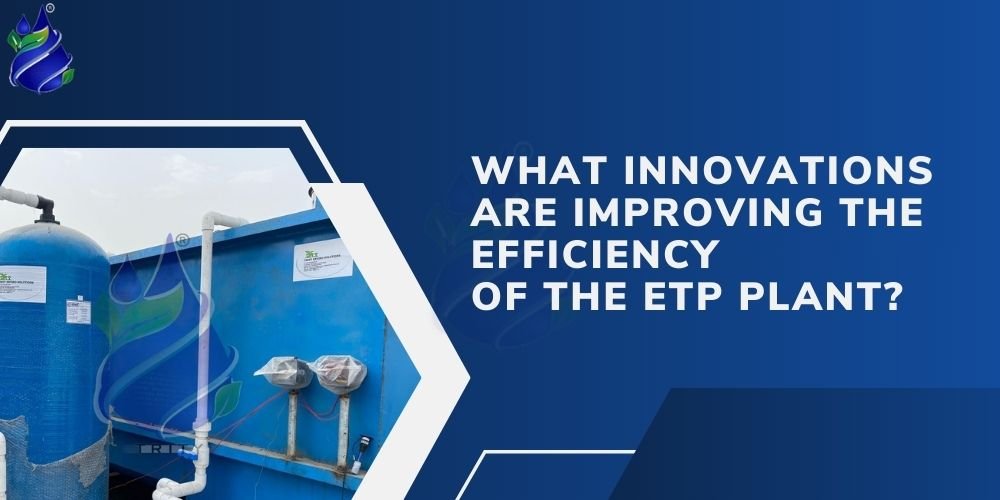
Effluent Treatment Plant and Its Working Mechanism
An essential facility for treating industrial wastewater before it is released into the environment is an effluent treatment plant (ETP). It is essential in minimizing the damaging effects of industrial operations on the environment since it rids the water of or drastically lowers the pollution levels. The liquid wastes produced by companies are called effluents, and the ETP treats them using a variety of physical, chemical, and biological processes. Screening, sedimentation, chemical precipitation, biological treatment, and disinfection are some of these procedures. Large debris is removed by screening, but larger particles are allowed to settle through sedimentation. Organic pollutants are broken down by microorganisms in biological treatments, while dissolved contaminants can be removed more easily using chemical methods.
Ensuring that treated effluent satisfies legal requirements and presents the least amount of environmental risk is the aim of an ETP. Adherence to these guidelines protects both human health and ecosystems. ETPs are designed with particular industries in mind, taking into account the kinds and quantities of pollutants they generate. The use of effective ETPs is becoming more and more necessary for sustainable and ethical industrial practices as industries expand.
Advantages of Energy Efficiency in Wastewater Treatment Plants
In order to ensure regulatory compliance, promote sustainability, and lessen the negative environmental effects of industrial wastewater, ETPs (effluent treatment plants) offer a number of benefits.
- Environmental Protection: By eliminating or lowering dangerous contaminants from industrial effluents before discharge into water bodies, ETPs are essential to the preservation of ecosystems. This safeguards aquatic life and aids in the prevention of water pollution.
- Regulation Compliance: ETPs make it possible for businesses to abide by strict environmental laws and guidelines. In order to ensure ethical and sustainable industrial operations, it is imperative that certain requirements are met in order to comply with the law and avoid penalties.
- Water Resource Conservation: ETPs' treatment and recycling of wastewater help to preserve water supplies. This decreases the environmental impact of water extraction and lowers the demand for fresh water, which is especially essential in areas where there is a water shortage.
- Protection of Public Health: Effluents that have been properly handled aid in preventing the contamination of drinking and agricultural water sources. Thus, by lowering the possibility of waterborne illnesses and guaranteeing the security of food crops watered with treated wastewater, this protects public health.
- Corporate Social Responsibility: Putting ETPs into place demonstrates a commitment to sustainable business practices and environmental stewardship, which is in line with CSR objectives. This can improve an industry's reputation and improve the wellbeing of the community.
Innovations contributing in the improvement of ETP
Effluent Treatment Plants (ETPs) are becoming more efficient thanks to a number of innovations, which also improves the plants' performance and sustainability. Among the noteworthy inventions are:
- Advanced Treatment Technologies: More effective and efficient contaminant removal is made possible by advancements in treatment technologies, such as membrane bioreactors (MBRs), reverse osmosis (RO), and advanced oxidation processes (AOPs). These technologies provide improved pollutant removal, higher treatment rates, and greater system efficiency as a whole.
- Integration of IoT and Sensors: Real-time monitoring of important parameters like chemical concentrations, flow rates, and water quality is made possible by the integration of Internet of Things (IoT) devices and sensors in ETPs. Operators can optimize treatment processes, react quickly to changes, and stop problems before they get worse thanks to this data-driven approach.
- Automation and Control Systems: By optimizing process parameters, advanced automation and control systems increase the operational efficiency of ETPs. Real-time adjustments to treatment processes can be made by automated controls, which guarantee maximum plant efficiency while consuming the least amount of energy and chemicals.
- Enhancements to Biological Treatment: Genetic engineering and microbiology research have produced robust microbial cultures that are more efficient at decomposing particulate pollutants. The overall effectiveness of ETPs which is also used in municipal wastewater treatment in treating complex industrial effluents is increased by these enhanced biological treatments.
Conclusion
Please contact us at +91 821030072 or enquiry@trityenviro.com if you would like assistance with the establishment of any of the aforementioned treatment plants. Trity Enviro Solution is a manufacturer of commercial RO plants, industrial RO plants, sewage treatment plants, water softener plants, and effluent treatment plants.


